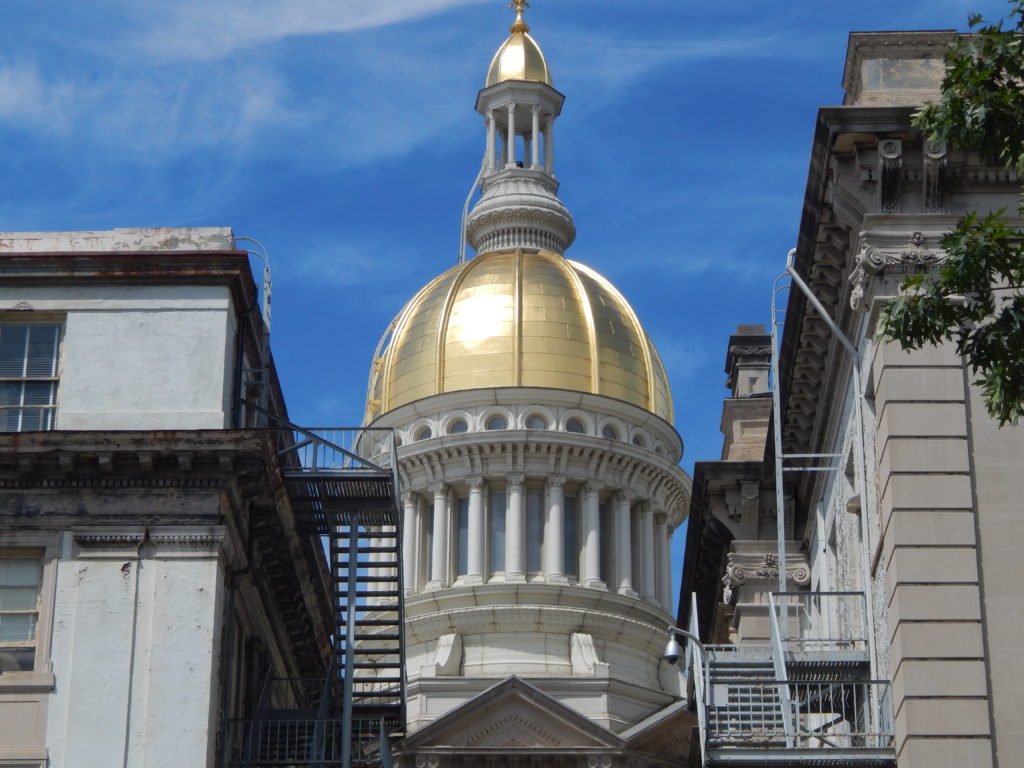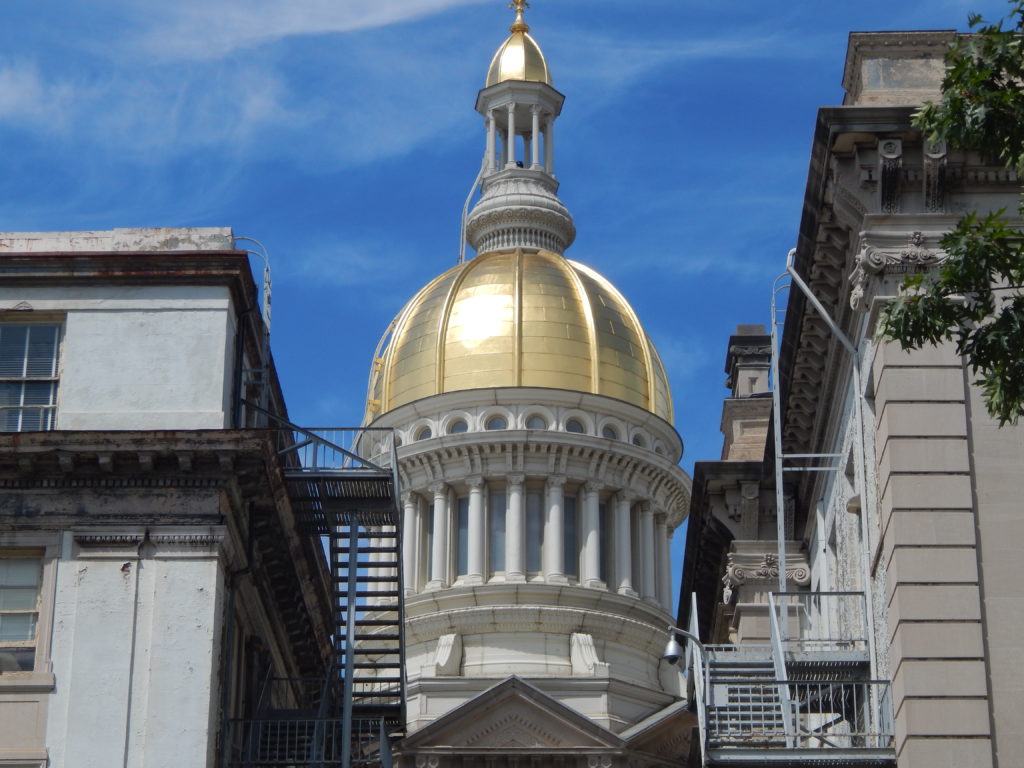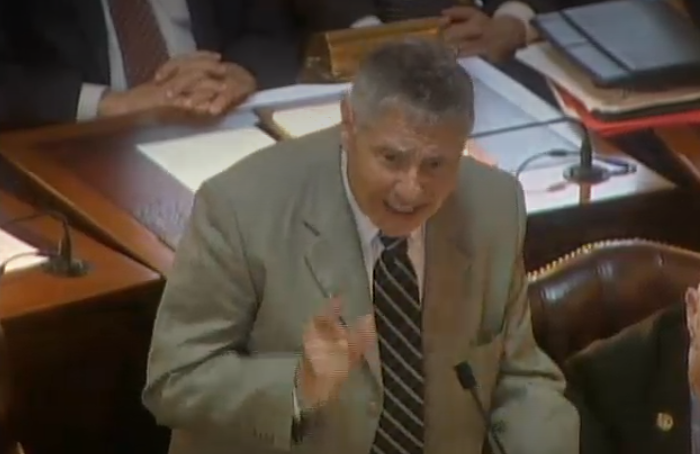
Bergen County lawmaker, Assemblyman John Azzariti Jr., is the first to introduce legislation repealing the state’s 2020 law banning single-use plastics and paper bags. The bill follows President Donald Trump’s executive order to bring back plastic straws and studies demonstrating how reusable bags actually increased waste in New Jersey.
“New Jersey implemented the most restrictive ban on single-use plastics, Styrofoam and paper carryout bags to much left-wing fanfare, but the unintended consequences of the law are starting to negate any environmental benefits,” Azzariti (R-Bergen) said. “Just because your intuition tells you something is going to be true, science can prove you wrong.”
According to a study released last year by the Freedonia Group, New Jersey’s anti-plastics law has been followed by a near tripling of plastic consumption. The reusable bags consumers are forced to purchase are manufactured with 15 to 20 times the amount of plastic used in the now prohibited single-use plastic bags. They are also being thrown away, or forgotten, after just a few uses.
In 1995, a person in New Jersey disposed of 11.83 pounds of waste on a daily basis. In 2021, that number jumped to about 13 pounds – the year that single-use plastics started to be phased out.
“New Jersey’s 9 million residents started accumulating massive amounts of woven and reusable bags after the plastic bag ban went into effect. It became so overwhelming that these bags eventually ended up in the garbage, because they aren’t recyclable or biodegradable,” Azzariti said. “There’s been no consensus on if the ban has worked, and in fact, there’s only evidence to suggest that prohibiting single-use plastics may even have the opposite effect.”
A study by Environmental and Resource Economics found restrictions on plastic grocery bags actually led to increased plastic garbage bag purchases. Over 120 pounds more plastic was purchased per store per month.
Alternative shopping bags made with non-woven polypropylene use over 15 times more plastic and generate more than five times the amount of greenhouse gas emissions during production than traditional plastic bags. Consequently, these bags end up having a much larger carbon footprint.
“My legislation isn’t only about being inconvenienced or disliking paper straws, although I think most people would generally agree with those two sentiments, it’s about looking at the broader impact of heavy-handed government mandates,” Azzariti said. “Just because the government declares something ‘bad’ for the environment, doesn’t mean it should be outlawed.”
One 2023 study by Belgian researchers found some paper and bamboo straws contain more PFAS, or “forever chemicals,” than plastic straws. Exposure to PFAS is linked to an increased risk of certain cancers. Even environmentalists have admitted to finding toxic dyes and glues in paper straws during testing.
The order Trump signed on Feb. 10 directs federal agencies to stop purchasing paper straws. The federal government buys more straws than any other group in the nation.
Azzariti’s bill (A5338) abolishes New Jersey’s law signed in 2020 that phased out single-use plastic bags and straws, paper carryout bags, and Styrofoam to-go containers.
“I think there are ways to reduce pollution, encourage recycling and be more environmentally-friendly without forcing residents to accept a flawed solution,” Azzariti said.
New Jersey Republican Assemblyman John Doe has recently proposed repealing the state’s ban on plastic bags and straws, sparking a heated debate among lawmakers and environmental advocates.
The ban on single-use plastic bags and straws was implemented in New Jersey in 2020 as part of a broader effort to reduce plastic pollution and protect the environment. The ban aimed to encourage consumers to use reusable bags and straws instead of relying on disposable plastic items that often end up in landfills or polluting waterways.
However, Assemblyman Doe argues that the ban has had unintended consequences, particularly for small businesses that rely on plastic bags and straws for packaging and serving food. He believes that the ban has placed an undue burden on these businesses, many of which are already struggling due to the economic impacts of the COVID-19 pandemic.
Proponents of the ban, on the other hand, argue that repealing it would be a step backward in the fight against plastic pollution. They point to the harmful effects of plastic on marine life and ecosystems, as well as the long-term consequences of continued reliance on single-use plastics.
Environmental advocates have also raised concerns about the potential increase in litter and pollution that could result from repealing the ban. They argue that reusable alternatives are readily available and that consumers can easily adjust to using them instead of plastic bags and straws.
The debate over repealing New Jersey’s ban on plastic bags and straws is likely to continue in the coming months as lawmakers weigh the economic concerns of small businesses against the environmental impacts of single-use plastics. Ultimately, the decision will have far-reaching implications for the state’s efforts to reduce plastic pollution and protect the environment for future generations.



